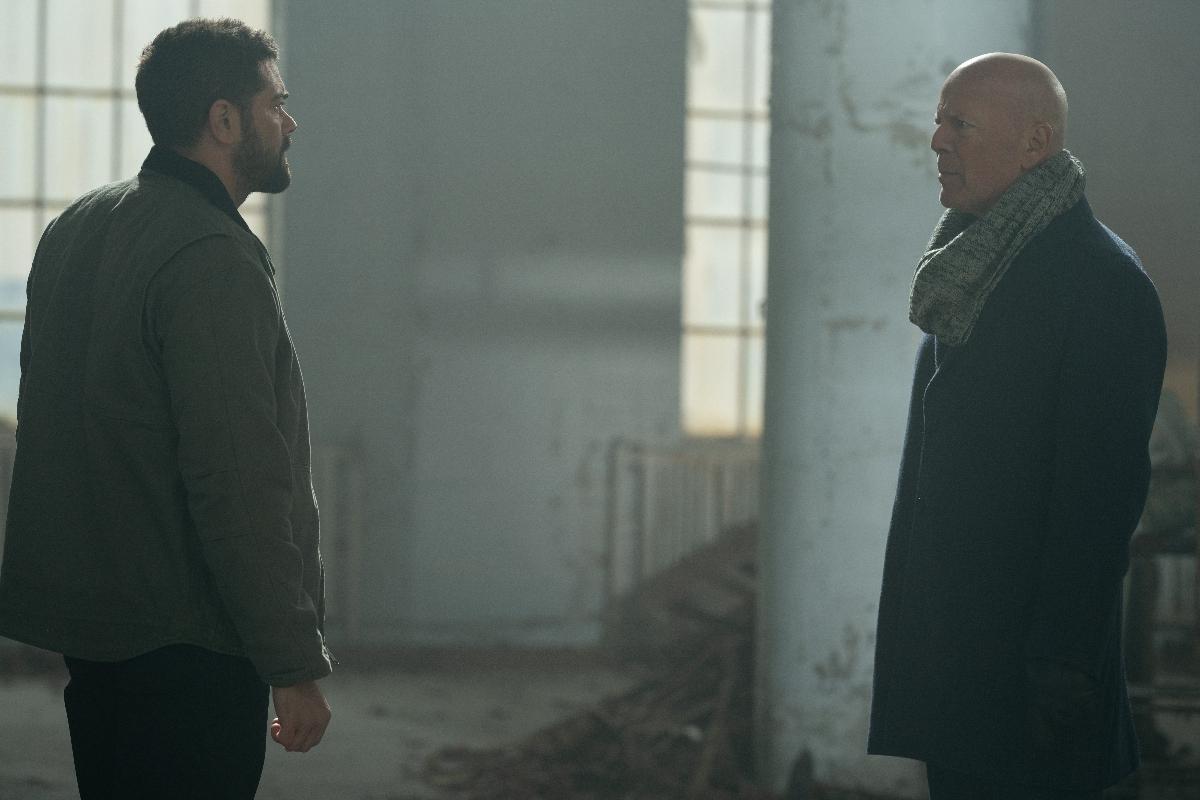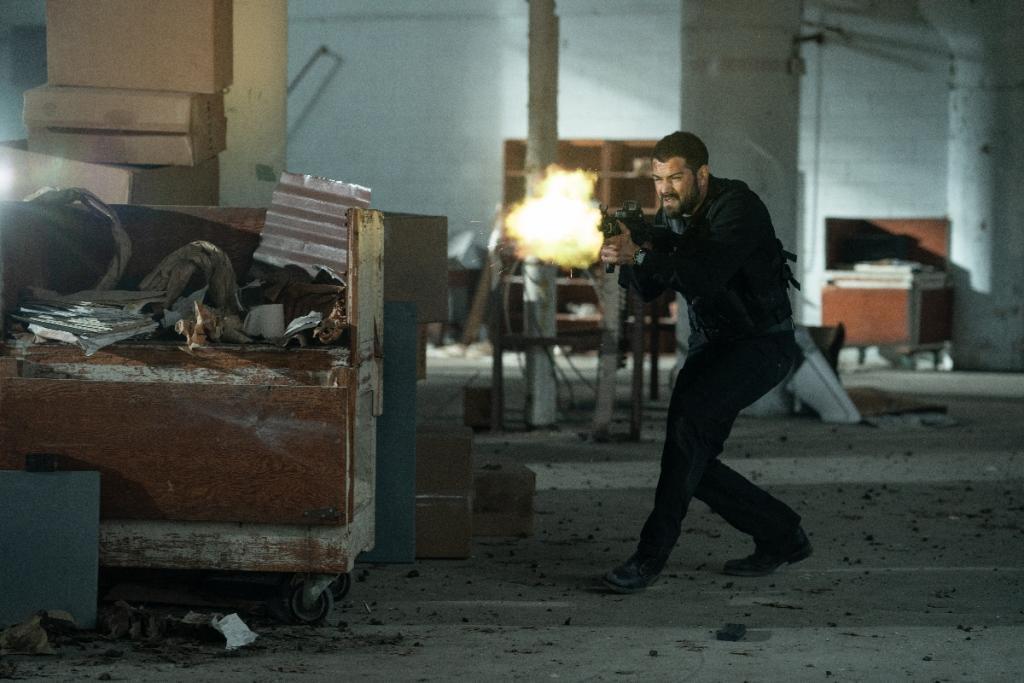
Aging A-list stars showing up in low budget actioners is quickly becoming a genre unto itself. From Mel Gibson, to Russel Crowe, to Bruce Willis, these box office titans of yesteryear are finding a robust second life in the DTV and direct to streaming space. I had the pleasure of speaking with Matt Eskandari about his most recent directorial effort, Hard Kill with Bruce Willis and Jesse Metcalfe. He gave great insight into the unique challenges of making these types of films as well as the artistic opportunities the genre can provide.
It’s been a crazy year for film, especially with the pandemic turning the entire industry upside down.
Exactly. I’ve already had one film released during the pandemic, so to have a second one come out is really interesting. We’re not competing with any big budget Marvel movies, and people are in real need of things to watch.
There’s something really nice about the playing field being leveled right now. It’s definitely been disrupted.
Oh yeah, it definitely has. Recently I’ve noticed films like The Wretched or the film Becky with Kevin James, without all the big theatrical releases everyone has started pumping out their content. And now, if you want to watch something, everybody has the same access now. It really comes down to getting good reviews or whatever audiences react strongly to.
It’s important to take the good with the bad. Over the last few months, nobody cares about big movie premieres and the hoopla crap that studios do to hype up a film. We’re just left with releasing the film, doing some interviews with the cast and crew, and if people like it, they like it. It’s an interesting time for sure.
Definitely. And who knows, maybe on the other side of this we’ll see a return to original films instead of nothing but franchises.
[Laughs] That I don’t know about. I think, to get away from that, you’d need audiences to shift away from franchises. And until audiences do… You know how when you go to a store and you buy coca-cola over the no-name brand, and stick to something you know? That’s why audiences go to the same franchises over and over, because it’s a product they know and trust. That’s why studios struggle with that kind of thing. Why make an original sci fi epic when you’ve already got Star Wars and Star Trek?
Very true. Would you say it’s made movies like Hard Kill harder to get green-lit?
Well, the good thing about making a movie like Hard Kill is that it’s not a $100 million or even $40 million movie. We’re a $7 million action movie. It’s not a big budget action movie, so it’s not like they’re taking a huge risk. Which is great for filmmakers if you can write a self-contained action movie or a thriller or a crime movie… If you can tell an effective story given the limitations, I think there’s still a lot of freedom out there for original content.
There’s never really been this many streaming platforms and avenues to watch a film. I remember when I was breaking into the industry in the early 2000s, you would either release a film theatrically or you’d go though the film festivals and HOPE that your film would get picked up by one of the seven studios (which was tough). You HOPE you have the next Pulp Fiction, otherwise it would just go to the DVD market which was completely different back then. It’s so much different now with so many platforms and so many ways to generate content like YouTube, Vimeo, and the like. It’s a different landscape for sure.
I was a little surprised when you told me what the budget was, because aside from the fact that it’s contained to one location it looked very cinematic. How did you overcome the budgetary limitations to create that?
I think that just comes from experience. I get this question a lot because a lot of up-and-coming filmmakers ask me “I have a low budget movie, but I don’t want it to look like a low budget movie, how do I avoid that?”. There’s no one answer about how to shoot a scene or what’s more cinematic. But there’s a way for filmmakers to use the tools provided to you to maximize your productions. One of the things I learned in film school, and the first couple of films that I made, is to shoot a scene in a way where there’s a lot of depth on camera. The lighting looks very sculpted. You’re moving the camera as much as possible.
When I was scouting around a warehouse location, I’m not just looking at a place and thinking “this is cool”. I was searching every nook and cranny and thinking “can I make this look like a different part of the warehouse”. Even though it’s only one set, I want it to have as much visual variety as possible. That there’s a wide range of color palettes. I remember when we walked up, we found a clock tower there, and I knew we had to find a way to shoot scenes in that amazing location. I thought “this is gonna add so much production value.” The producers were like “uh, I don’t know. We’re gonna have to drag equipment up the clock tower. We’re gonna have to drag Bruce up the clock tower”. But I fought for it because it was gonna add a lot to the film if we could find a way to shoot in there. I’ve done enough films to know that if you point the camera in a certain direction, it’s gonna give the film that cinematic quality.
It really comes down to experience. It’s having done enough films, edited enough films and looking back on your mistakes. Like, you’ll have shot a great scene and then you’ll look back in the edit and think “why doesn’t this scene look good? Why doesn’t it feel cinematic?” Then you realize, “oh, I should have pointed the camera in this direction instead.” It’s one of those things where you just learn through experience.
This is your third time making a movie with Bruce Willis. Could you talk about your working relationship with him and how it’s evolved over three films?
It’s been a great relationship. I’ve gotten a chance to build that trust with him as a director and as an actor. I think it’s one of those things you learn as a filmmaker, that the most important thing is to build that trust with an actor. If an actor trusts you, whether it’s Bruce Willis or an up-and-coming actor, if you build that trust with an actor then they’ll do what you want. They want to help tell that story. They want to help bring your vision to life.
You have to earn that trust. You have to show them you’re prepared. That you have a strong vision. I remember what I did when I first learned I’d be working with Bruce Willis. I wanted to make it a good experience, so I watched a bunch of behind the scenes interviews to find out what he looks for in a good director. I was watching an interview for the movie Unbreakable with M. Night Shyamalan and talked about how he had a strong vision for the film. He talked about how he was very deliberate with things like wardrobe and why the character would be wearing this and the color palette. I realized that Bruce likes the kind of director who has a strong take and a strong vision who can talk to him and collaborate with him. So I knew I had to make that impression that I was one of those filmmakers he could trust and had a strong vision for the film. I wasn’t just expecting him to come up with something, I was there with my own ideas and ready to collaborate. That’s why I’ve been able to get such good performances, in this film but especially from our previous film Survive the Night. I honestly think his performance in that film was amazing.
So when having an A-list star in a small budget film, oftentimes their availability is pretty limited. Is there a different vibe on a “Bruce day” as opposed to a non-Bruce day?
Oh definitely! When you have an A-list star like this in the movie, the studio has a mandate that he has to appear in at least 25 minutes of the movie; otherwise, the studio can’t sell the film to international buyers. So you have to have him in 25 pages and those 25 pages need to be shot in two days over the course of 8 hours each. It’s REALLY tight.
Those two Bruce days are the toughest days, without a doubt the most stressful. You have to prepare every minute, and when I say every minute I mean it literally. 10:45 to 11:02, Bruce is shooting this. 11:05 to 11:11, we’re shooting this many takes of this one shot. And then we’re gonna turn around and have the gun ready for him to shoot toward the camera. Literally every minute has to be blocked out because if you run out of time with Bruce and you don’t get a scene, you’re not getting him back for an extra day. The studio can’t afford to spend an extra million dollars to get Bruce back after those two days. You’re basically left with what you shot. The sales agents and producers are expecting you to come in there and do your job and one of the challenges as a director on these types of films is you have a lot of people to appease. They’re counting on you to be able to execute the story.
I’ve looked at your filmography and over half of it is action movies. Is action cinema something you fell into, or is it something that you pursued?
You know, I’ve always loved action thrillers so it’s always been something I’m drawn to. My favorite director is James Cameron; Terminator 2, to me, is a perfect action film. I’m a big fan of Terminator and Robocop; classic action flicks like Die Hard and Predator. Action has always been a fun and entertaining genre to be playing in. I definitely sort of fell into it, in a way, and I really love it. That doesn’t mean I don’t want to do other kinds of films, like a pure crime thriller or a serial killer movie. I love sci fi and would love to explore the sci fi genre. But I think no matter what I do, there’s always going to be some element of action involved in it. That’s just my style.
Hard Kill is now available on VOD!

